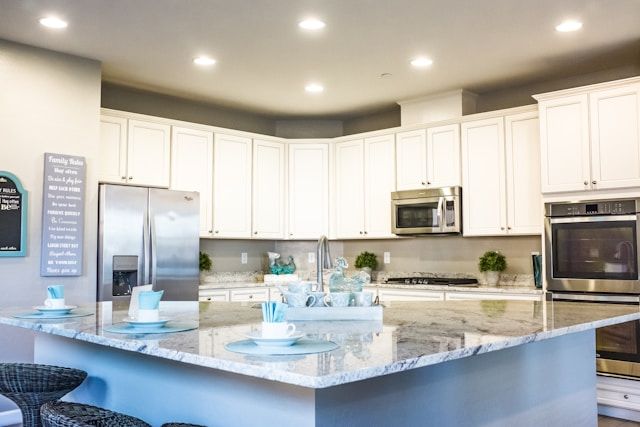Back
The Complete New York Airbnb Host Lodging Tax Guide: Airbnb New York Occupancy Tax Breakdown

Written by:
Jeremy Werden
April 25, 2025

⚡️
Reveal any property's Airbnb and Long-Term rental profitability
Buy this property and list it on Airbnb.
Navigating the world of lodging and occupancy taxes can be quite confusing as a short-term rental host in New York. Sometimes, you’re not sure what taxes apply to your rental, what you should collect, and what gets automatically collected by your platform. Whether you’re just starting out or looking to ensure compliance with the latest regulations, understanding your tax obligations is crucial for running a successful and legally compliant Airbnb or VRBO property. Our guide breaks down everything you need to know about New York’s lodging and occupancy taxes in 2025.
State-Wide Lodging and Occupancy Taxes in New York
New York has recently undergone significant changes in how short-term rentals are taxed. Effective March 1, 2025, New York State and local sales tax is now imposed on all short-term rental unit occupancy when the rental rate exceeds $2.00 per unit per day. This represents a major shift in policy, as short-term rentals are now subject to the same sales taxes as traditional hotels and motels.
New York State requires guests on short‑term rentals to pay state sales and occupancy taxes, and, in many areas, additional local taxes. All short‑term stays are subject to New York State’s 4% Sales and Use Tax. All mandatory state taxes must be collected on the listing price, plus cleaning or guest fees, for stays up to 89 nights.
A new Short-Term Rental Registry law, which took effect on April 21, 2025, requires owners to register with relevant authorities and requires booking platforms to verify the validity of registration numbers and remove any listings without a valid registration number.
Does Airbnb or VRBO Collect and Remit Taxes in New York?
Platforms like Airbnb and VRBO are required to report detailed information to New York State, including rental locations, occupancy nights, guest counts, and taxes collected. The new Short-Term Rental Registry law also requires booking platforms to submit quarterly reports to the state detailing the number of bookings facilitated in each county.
Under New York’s marketplace‑facilitator law, platforms like Airbnb and Vrbo generally collect and remit these state taxes on behalf of hosts.
While Airbnb does collect and remit occupancy taxes for hosts in many New York counties, the specific arrangements still vary by location. The new law has expanded these requirements, but hosts should still verify their specific obligations based on their property’s location as any taxes not collected remain the host’s responsibility.
City and County-Specific Local Tax Requirements
Beyond the statewide tax, many New York counties and some cities charge their own hotel/occupancy taxes on short-term rentals. These local taxes are typically added to the room price (including cleaning fees) for stays up to 30–90 days, depending on the location. The revenue usually funds tourism promotion, convention centers, or local services. For example, New York City imposes a state Hotel and Motel Occupancy Fee of $1.50 per unit per day instead of a fixed percentage.
Here’s a table of the different city and county lodging tax rates within New York State:

Example Calculations
Sometimes, it can be hard to run the numbers in your head. So, here are a couple of example tax calculations to help you visualize them.
For a Property in New York City:
A 3-night stay at $210 per night.
- Total nightly Rate: $210 x 3 = $630
- Cleaning Fee: $80
- Total Listing Price for a 3-night stay: ($210 × 3) + $80 = $710
- New York State Sales Tax (5%): $710 x 0.05 = $35.50
- Hotel and Motel Occupancy Fee ($1.50/night): $1.50 x3 = $4.50
- Total Tax Collected: $40
- Total Guest Payment: $710 + $40 = $750
For a Property in Cayuga County:
A 5-night stay at $250 per night.
- Total nightly Rate: $250 x 5 = $1250
- Cleaning Fee: $200
- Total Listing Price for a 5-night stay: ($250 × 5) + $200 = $1450
- New York State Sales Tax (5%): $1450 x 0.05 = $72.50
- Hotel and Motel Occupancy Tax (5%): $1.50 x 0.05 =$ 72.50
- Total Tax Collected (10%): $145
- Total Guest Payment: $1450 + $145 = $1595
Wrapping Things Up
Understanding and complying with New York’s lodging and occupancy tax requirements is essential for short-term rental hosts. The landscape has changed significantly with the implementation of the Short-Term Rental Registry law in 2025, bringing more transparency and regulation to the industry.
These tax ranges are meant for general information purposes. Local counties and even cities can have more specific rates that only apply to them. For this reason, we still highly recommend checking out the local STR regulations in your area or contacting local officials for more information.
⚡️
Reveal any property's Airbnb and Long-Term rental profitability
Buy this property and list it on Airbnb.